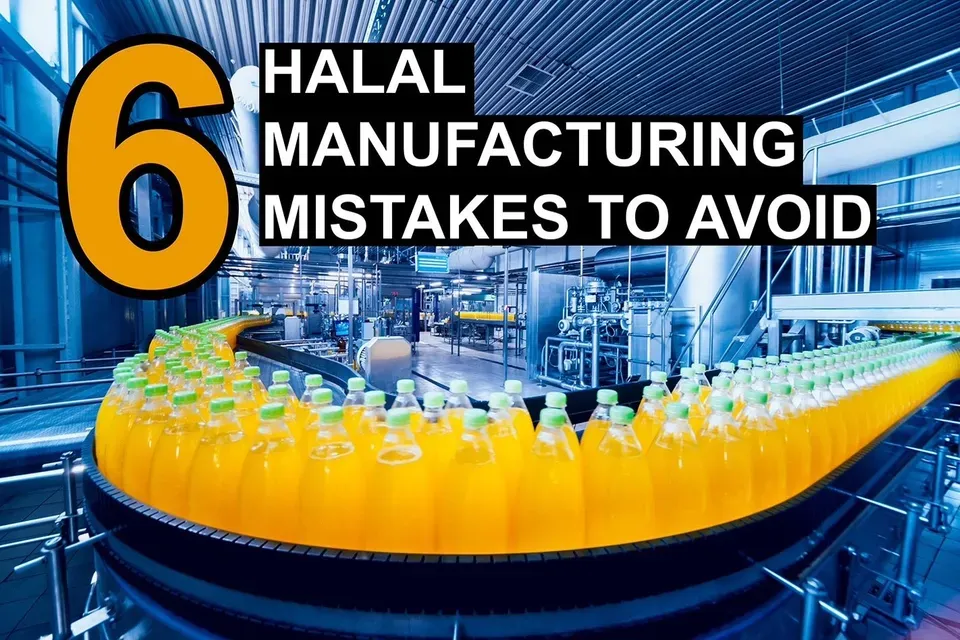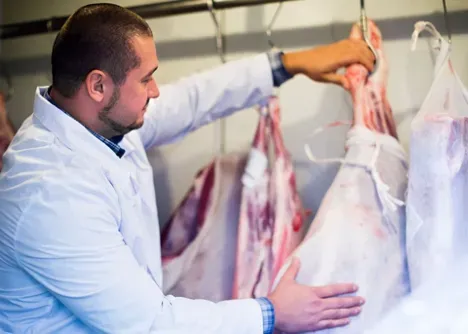
Many Halal conscious consumers, Muslim or not, now opt for food and beverages that are Halal certified. According to Thomson Reuters, the market is estimated to reach US$2.7 trillion by 2023. This has driven many companies to gain halal certification. After the rigors of obtaining your halal certificate, here are 6 common manufacturing mistakes to avoid in order to maintain your halal certification status and remain compliant.
When it comes to manufacturing Halal food and beverages, who you certify with is essential. Having Halal certification for all of your products will help you grow your brand among the halal conscious consumer. The Halal certification agency provides the needed credibility for consumers, guaranteeing that all of your products have been vigorously checked and are in accordance with halal dietary standards. It is very important to be selective with your choice, and ensure that they are reputable; competent; and provide the integrity needed to boost your company’s standing in the industry.
Some facilities produce both halal certified and non-halal certified products. Companies must ensure that all surfaces that have touched non-halal certified products have been thoroughly cleaned, such that no residual product is left behind. Personnel should also be aware of not carrying any filth from their selves to the product. Wash hands, use gloves, hair nets, and protective outerwear to prevent these types of issues. Manufacturers should utilize best practices, such as designating halal only production days, and swab testing at control points of contact within the facility. This will protect an establishment from any mishaps or mishandling.

So, your establishment is now certified and your suppliers have been checked. Sometimes, a checked supplier runs out of product, but your company still needs to fulfill its orders. In this situation, you are required to notify your halal certification agency and inform them of the switch. The supplier, and their raw materials will be checked to ensure that nothing unhalal is present in their products. This way you can produce your product with the confidence that there won’t be any issues down the line.
It is important to note that certification agencies are well aware of the proprietary nature of many ingredients. Products may contain general terms such as ‘natural flavors’, ‘spices’, ‘extracts’, ‘blend’, and ‘artificial flavors’ on their ingredients labels, which is non-descriptive for the consumer. We are aware that this is due to the nature of them being ‘trade secrets’ that are not made public on those grounds.
As the producer, you must be completely transparent with the ingredients used in making your products. Your certification agency will never disclose any of your ingredients, and are sworn by a contractual agreement to comply with these terms. This is why the certifier is so important. We act as the middle man between the consumer and the producer, ensuring that the product is indeed halal, even when the ingredients are proprietary. Even if your consumers do not know the nature of the proprietary ingredients, they will have the confidence and peace of mind knowing that a reputable halal certification body has thoroughly checked them.
Some halal certified establishments believe that when they receive a halal certificate, all of their products are automatically Halal, whether they have been checked or not. This couldn’t be further from the truth. All new products must be thoroughly checked by a verified halal product reviewer. This requires the disclosure of ingredients, product names and labels, suppliers, and any other information required by the certifying body.

Always be forthright with your halal certification agent. During a re-inspection, the field agent is trained to catch incomplete answers, and problematic data. It does no good to be dishonest. If a halal certified agency is not honest, it not only affects the halal status of the producer, but distributing non-halal products under the guise that they are halal affects the credibility of the certification agency. Our producers are like partners to us. When we provide a certification seal, our trust is on the line. The last thing a manufacturer would want to break is this trust.
Discover if your ingredients, processes, and facilities align with Islamic dietary laws.
Start your Free Halal Compliance Check now — no obligation!
